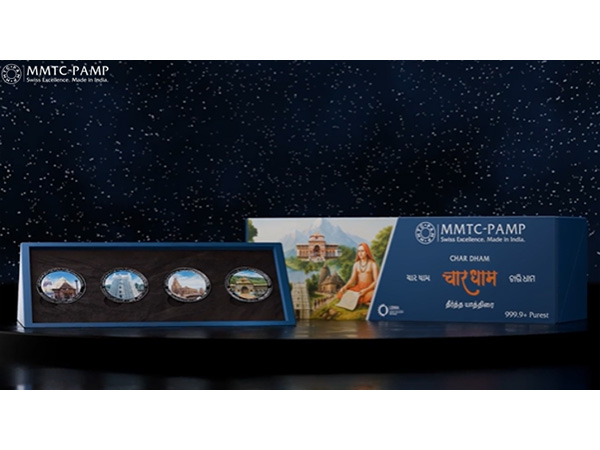
US court blocks Trump's reciprocal tax policy
May 29, 2025
Washington [US], May 29: The US Court of International Trade blocks President Donald Trump's tariff policy.
A US trade court has just ruled to block President Donald Trump 's "Liberation Day" tariff order , arguing that the president exceeded his authority by imposing a broad tax on imports from countries that export more to the US than they import.
The Manhattan-based Court of International Trade said that in order to protect the US economy, the US Constitution gives Congress the exclusive power to regulate trade with other countries without being overwhelmed by the president's emergency powers.
"The court does not make any judgments about the wisdom or likely effectiveness of the President's use of tariffs as a tool of pressure. That use is impermissible, not because it is unwise or ineffective, but because [federal law] does not permit it," a three-judge panel said in the ruling.
The rulings came in two lawsuits, one filed by the nonpartisan Liberty Center for Justice on behalf of five small U.S. businesses that import goods from countries subject to tariffs, and the other brought by 13 U.S. states.
The companies, which include a New York-based wine and spirits importer and a Virginia-based manufacturer of educational kits and musical instruments, said the tariffs would negatively impact their ability to do business.
At least five other lawsuits challenging these tariffs are still under consideration.
Oregon Attorney General Dan Rayfield, a Democrat who led the states' lawsuit, called Mr Trump's tariffs illegal, reckless and causing severe economic harm.
"This ruling reaffirms that our laws matter, and that trade decisions cannot be made at the whim of the President," Rayfield said.
Just minutes after the above information, the US government appealed.
Stephen Miller, the White House deputy chief of staff and one of Mr Trump's key advisers, criticised the court in a short post on social media, saying "the judicial coup is getting out of control".
Mr Trump argued that he had broad authority to impose tariffs under the International Emergency Economic Powers Act (IEEPA), a law intended to respond to "unusual and extraordinary" threats during a national emergency.
The law has traditionally been used to impose sanctions on US adversaries or freeze their assets. Mr Trump is the first US president to use it to impose tariffs .
The Justice Department argues that the lawsuits should be dismissed because the plaintiffs have not been harmed by the tariffs they have yet to pay, and because only Congress has the power to challenge a national emergency declared by the President under IEEPA.
In April, Mr. Trump announced a 10% tariff on all imported goods, with higher tariffs on countries with which the United States has a trade deficit, especially China.
Many tariffs were suspended a week later. The US administration said on May 12 that it would temporarily reduce the highest tariffs on China while it seeks a long-term deal. The two countries agreed to reduce tariffs on each other for at least 90 days.
In another development, Judge Indira Talwani in Boston on May 28 issued a temporary ruling blocking the White House's policy of stopping the "temporary parole" program, which has allowed hundreds of thousands of immigrants with sponsors in the US to legally enter the country.
Judge Talwani rejected the Trump administration's argument that ending the programs falls within the broad discretion of federal agencies in administering immigration policy. The Department of Homeland Security did not immediately respond to a request for comment.
Source: Thanh Nien Newspaper









